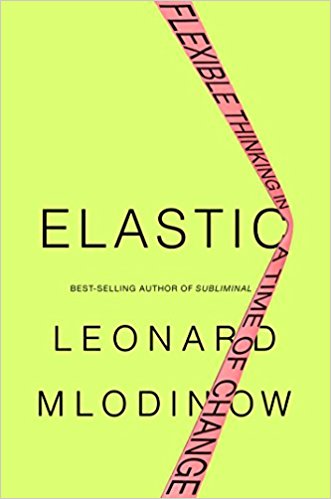You have /5 articles left.
Sign up for a free account or log in.
 Elastic: Flexible Thinking in a Time of Change by Leonard Mlodinow
Elastic: Flexible Thinking in a Time of Change by Leonard Mlodinow
Published in March of 2018.
Why is a liberal arts education the best kind of education?
We think we know the answers. A liberal arts education is a catalyst for curiosity. In a world where the only constant is change, and today’s graduates are likely to have multiple careers throughout their lives, the best skill that one can acquire in college is the ability to learn how to learn.
In Elastic, the theoretical physicist (and former Star Trek The Next Generation writer) Leonard Mlodinow, explains what a liberal arts education does to our brain. He grounds the ability to think with agility and flexibility in the neuroscience that explains these behaviors.
Elastic contains its fair share of detailed descriptions of brain structures and advances in cognitive science. What makes the book enjoyable to read is how Mlodinow connects cognitive science to examples of elastic thinking. Some of my favorite examples of elastic thinking from the book were the description of how jumbo movie theater popcorn was born, how Mary Shelley wrote Frankenstein, to how the U.S. was able to deploy stripped down bombers launched from ships to attack Tokyo soon after Pearl Harbor.
At one point in Elastic, Mlodinow quotes Keynes saying that ,"..the difficulty lies not in the new ideas, but in escaping from the old ones.” This to Mlodinow is the definition of elastic thinking, the ability to move beyond cognitive scripts and rigid analytical thinking in order to come up with original ideas. This quote from Keynes could also, I think, serve as a good description of the goals of a liberal arts education.
Mlodinow did not set out to write a defense of a liberal arts education. But in Elastic, he has done just that.
What other good books on cognitive science and societal change would you recommend?
Are we doing enough at our colleges and universities to ground our teaching practices in the learning and brain sciences?
Has someone actually written a full throated defense of the liberal arts from the lens of neuroscience?
What are you reading?




